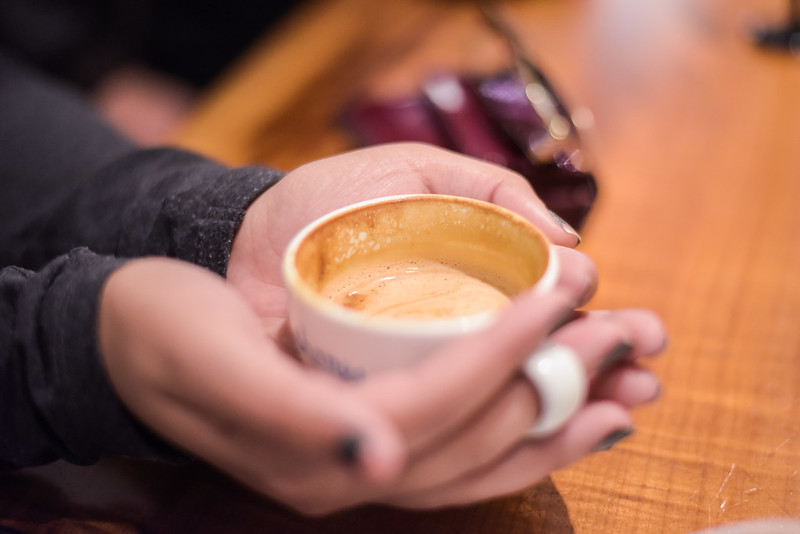Editor’s Note: The following column is satirical. It is meant for humorous purposes. All interviews and individuals are fictitious.
With the University of Massachusetts’ number one dining status, students are sure to find a wide array of refreshing, hand-crafted drinks to complement their heaping platters of hot stir fry and suspiciously dry burgers.
Overshadowing fan favorites like blue Powerade, one drink reigns supreme in the dining hall: coffee.
Fueling early mornings, late nights and anemic afternoons, this bitter bean water is a staple among college students who stand by the notion that “sleep is for the weak.”
From their first sip, many freshmen have realized that the coffee served in the dining halls isn’t exactly your average hand-ground cup of love. In fact, it isn’t even your average machine-made cup of compromise. Come to think of it, we’re not even sure if the dining hall coffee is even coffee to begin with.
But we can be certain about one thing: dining hall coffee is merciless. Even though the dining hall mugs have the liquid volume capacity of a toddler’s teacup set, it only takes a small amount of this coffee to feel it’s heart-pounding effects.
We interviewed coffee drinkers in Berkshire Dining Commons about their experiences.
“I feel so productive. I feel like I have to be doing things, many things very fast,” said freshman food science major Cappy Chino in one breath, her leg shaking at a pace that rattled the table. “Doing what? I have no idea. Time is meaningless. I pushed my dorm bed to the center of the room because the walls keep talking to me. I can smell the color red. I have transcended.”
When asked how many cups she had consumed, Chino said that she drank one.
“I recently sipped on what was allegedly a decaf,” said senior public health major Moe Kah. “If that was decaf then why can I feel my eyeballs vibrating? They just put a decaf label on the dispensers to give us the illusion of choice.”
Kah told us the story of his friend who became hooked on the infamous “Major Dickinson’s Dark Roast” blend during finals week.
“There’s no way that the dark roast is street legal. Whatever you do, you must resist the siren song of the Major Dickinson’s Dark Roast,” Kah said. “It doesn’t discriminate. It’ll make your head spin, your heart race and it doesn’t show any mercy on your lower intestines either if you know what I mean.”
“I think I’ve been blinking less in college,” admitted one freshman, holding an unwavering red-eyed gaze with us. She was yet another one of Major Dickinson’s dark roast’s victims.
According to the labels on the metal dispenser vats, UMass’ coffee supplier is none other than the San Francisco Bay-area roaster and retailer, Peet’s Coffee.
Our anonymous dining hall informant revealed to us that the colorful dispenser labels that advertise various roasts and blends are merely an elaborate front. The coffee grounds received by the dining hall are bulk shipments of Peet’s Coffee’s manufacturing rejects. The boxes kept in the back room display a label reading “Poot’s Caffeinated Beverage,” which is a non-FDA-approved child company of the Peet’s Coffee corporation, specializing in providing discount generic “coffee” grounds for college campuses across America.
The average cup of coffee is around 98.75 percent water and 1.25 percent ground coffee bean matter. It also includes a whole host of chemicals and compounds such as acetylmethylcarbinol and trigonelline, which sound like materials for making a pipe bomb.
The UMass chemistry department recently conducted a comparative study between regular coffee and the UMass dining hall java, coming to the conclusion that the make-up of UMass coffee consisted of a whopping 0 percent water, 103 percent ground coffee bean matter and five percent independent compounds not yet known to modern science.”
Luckily, there are places on campus for students who want coffee that’s comparatively weak and straightforward.
For example, the coffee from the cold metal self-serve dispensers at the Roots Cafe in the Commonwealth Honors College seem to proudly embody a reputation of being nothing more than “one step above dish water.” The caffeine content of each serving is kept at a regulated 0 percent, and students often report feeling more tired after drinking it.
If UMass wants to help its students walk the thin line between tired and wired, it needs to reconfigure its coffee recipes. Until then, it’s probably a good idea to skip the coffee and try adopting something simpler and healthier, like Four Loko.
Kelly McMahan can be reached at [email protected].




















Abe • Aug 29, 2022 at 9:24 am
Back in my day we used to drink two onions to a bean. That’s what we called dark roast back then, onions. You had to keep the beans tied to your belt loop. “Give me a five bean” you’d say. Now that’s because the Kaiser had taken all our garlic during the war.
Jeff • Feb 7, 2022 at 11:30 am
Wired, tired, and squatting on the porcelain altar.